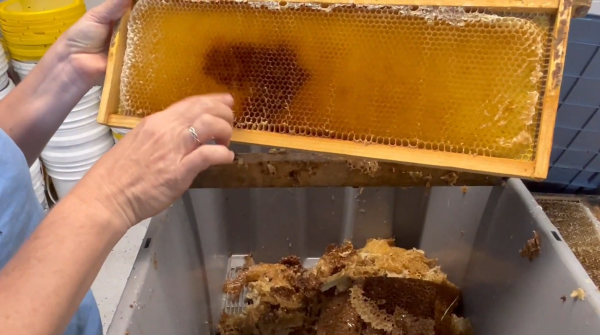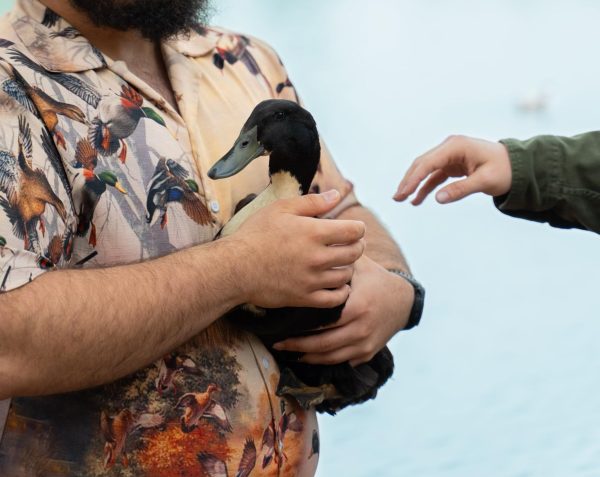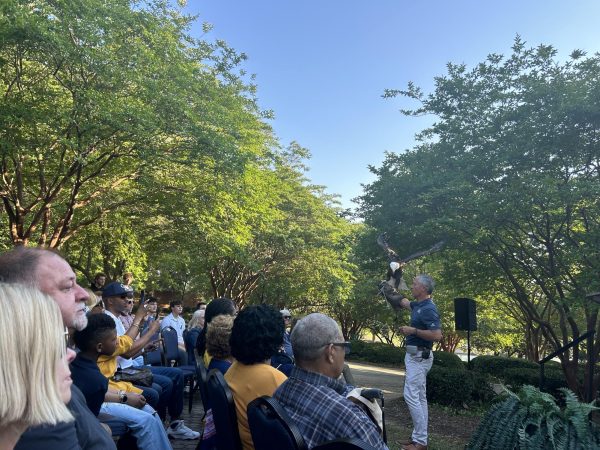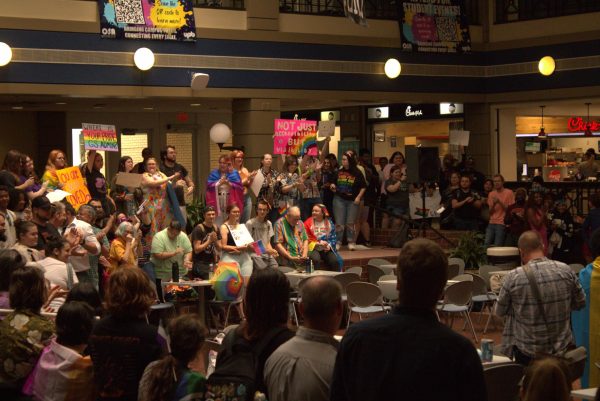First Amendment could limit disciplinary actions for student who used racial slur in ‘triggerish’ incident
August 13, 2018
The U.S. Constitution’s First Amendment could play a vital role in Georgia Southern University’s approach to a student’s use of a racial slur over the summer.
The screenshots depicted a conversation between two future GS roommates. After the two exchanged messages, the sender appeared to accidentally send a message not meant for the receiver that included a racial slur.
The current status of the sender of the message is unable to be disclosed by the university due to the Family Educational Rights and Privacy Act, a federal law that protects the privacy of student education records.
However, the First Amendment’s free speech clause could severely limit GS’s ability to penalize the student who used the slur.
Freedom of speech in public institutions
GS President Shelley Nickel said there were no updates on the university’s approach to the incident as of August 1. Nickel did comment, however, on how the First Amendment could impact the university’s approach.
“Because we are a public institution language is protected by the First Amendment and as much as we hate what was said it is protected speech,” Nickel said. “Therefore, we as a university have to protect all speech. We can’t protect only content that we like, we have to protect all and that is what the constitution says and that is the rules of our land and that’s how we will conduct ourselves.”
Frank LoMonte, director of the Brechner Center for Freedom of Information, said there are very few types of speech that are outside of the protection of the First Amendment. Racial slurs are not one of them.
{{tncms-inline content=”<p>"Racial slurs most certainly are protected by the First Amendment, and it’s a good thing that they are, since music and literature regularly incorporate the "N-word" and other types of insulting language," LoMonte said in an email.</p>” id=”e13017e3-46fa-402a-8b68-2c21a034341d” style-type=”quote” title=”LoMonte quote 1″ type=”relcontent”}}
While LoMonte said the Supreme Court has not had very many college speech cases, in the 1973 case Papish v. Board of Curators of the University of Missouri, justices said the University of Missouri could not expel a student for distributing a homemade magazine that contained “F-bombs” and other harsh language directed at the police.
“I’m not aware of any case where a single racial slur could be grounds for discipline, especially when said in a private conversation,” LoMonte said. “Colleges are not the “friendship police,” and if people get into arguments and exchange harsh words, that is a personal matter and not a college matter.”
What the First Amendment does not protect
According to freedomforuminsitute.org, there are nine categories of speech that are not protected by the First Amendment:
- Obscenity
- Fighting words
- Defamation (including libel and slander)
- Child pornography
- Perjury
- Blackmail
- Incitement to imminent lawless action
- True threats
- Solicitations to commit crimes
Whether a college has authority over the use of racial slurs depends on context, LoMonte said.
“A college’s authority over students is at its highest inside of the classroom, so certainly a student who flung a racial insult at another student in the middle of the classroom could be penalized,” LoMonte said in an email. “But outside of the classroom, students have significant First Amendment protection that a college cannot override by its disciplinary code.”
LoMonte continued to say that the use of racial slurs could be punishable if done in the form of harassment.
“Now, if the use of racial slurs rises beyond an unpleasant social interaction and it actually becomes harassment — let’s say a student has racial slurs painted on the door of her dorm in a way that would place her in fear of racial violence — then the college can impose punishment and the speech loses its First Amendment protection.”
GS campus-wide conversations
In her Fall 2018 convocation speech on August 8, Nickel reiterated that the university will abide by the First Amendment but would also strive for campus safety.
{{tncms-inline content=”<p>"There&rsquo;s no question that as a public institution of higher ed we believe in the first amendment," Nickel said. "Students, faculty and staff express themselves, their ideas and their opinions. There is no question that as a public institution we will follow all required laws and policies that protect both free expression as well as campus wellbeing and safety."</p>” id=”1a639df7-4b4a-4561-9e08-bea74a250f7f” style-type=”quote” title=”Nickel quote 1″ type=”relcontent”}}
Nickel also called for a time for action from GS by directing a campus-wide discussion and described the incident as a teachable moment.
“You will hear more about this in the coming weeks but at its foundation we must acknowledge no matter where we are from, what we look like, how we talk, how we move, we are here together with a common purpose to learn and succeed,” Nickel said.
Any person may report a complaint of bias through GS’s Bias Incident Report Form.
Click here for a complete recap of the “triggerish” incident.
Matthew Enfinger, The George-Anne Editor-in-Chief, gaeditor@georgiasouthern.edu.














